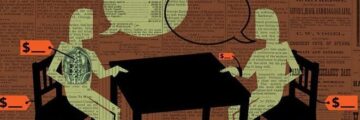I’m thrilled today to welcome the brilliant and creative Hajin Kim, an Assistant Professor of Law at the University of Chicago. Hajin uses principles from social psychology and economics to study how moral and social influence can shape environmental regulation and firm behavior. She joins us today to discuss her new working paper, Does Paying to Pollute Make Pollution Seem Less Bad? UVA Law 3L, Cyrus Tafti, joins me as co-host on this episode.
Hajin received her BA in economics, summa cum laude, from Harvard, her JD from Stanford Law School, and her PhD from Stanford’s Emmett Interdisciplinary Program in Environment and Resources. Before attending Stanford, Hajin worked for the Boston Consulting Group. She clerked for Judge Paul Watford of the US Court of Appeals for the Ninth Circuit and Justice Ruth Bader Ginsburg of the US Supreme Court.
Further Reading:
Hajin Kim bio: https://www.law.uchicago.edu/faculty/kim
Hajin Kim, Does Paying to Pollute Make Pollution Seem Less Bad?
Hajin Kim, “Does ESG Crowd Out Support for Government Regulation?,” Coase-Sandor Institute for Law & Economics Research Paper No. 983(2023) (with Joshua C. Macey & Kristen A. Underhill). ssrn cu
Hajin Kim, “Expecting Corporate Prosociality,” 53 Journal of Legal Studies 267 (2024). www
Hajin Kim, “Financially Equivalent But Behaviorally Distinct? Pollution Tax and Cap-and-Trade Negotiations,” 52 The Environmental Law Reporter 10809 (2022) (with K.C. P. Hirsch). www
Kim Krawiec bio: https://www.law.virginia.edu/faculty/profile/kdk4q/1181653
Kimberly D. Krawiec, Markets, repugnance, and externalities, Journal of Institutional Economics 1–12 (2022).
Kimberly D. Krawiec, No Money Allowed, 2022 University of Chicago Legal Forum 221–240 (2022).
